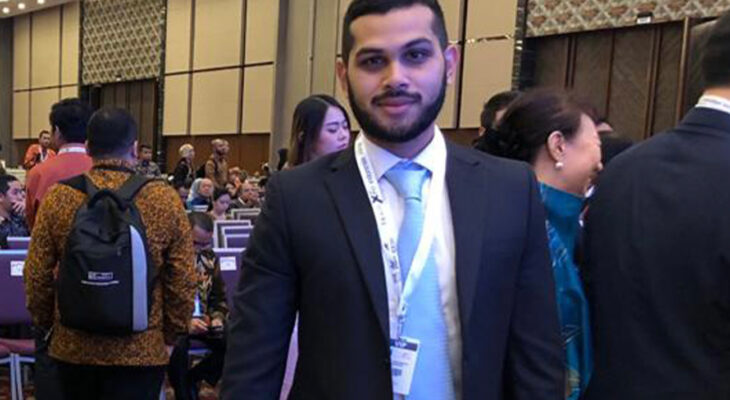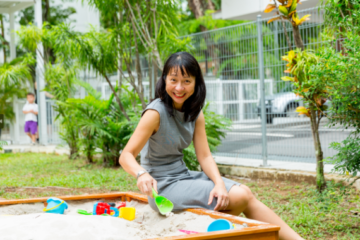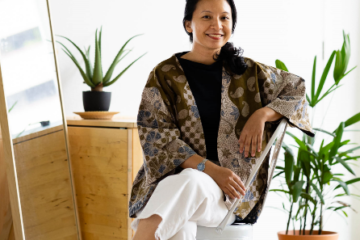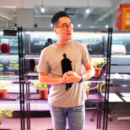
Aqeel Nomanbhoy: Carrying on his Family’s Legacy
The fifth-generation scion of spice trader Nomanbhoy & Sons is helping to navigate his family business amid a fast-changing business landscape.
As a director in the business founded by his great-great-grandfather, Aqeel Nomanbhoy is in the rare position of being a fifth-generation corporate leader in Singapore.
His family’s business , Nomanbhoy & Sons, is one of Singapore’s oldest spice and commodities traders, having been founded over a century ago in 1914. Today, Aqeel works closely with his father and grandfather to navigate the business as it seeks to remain relevant in a rapidly evolving world.
Being part of a multi-generational family business has its perks, but also comes with its own set of challenges. In an interview with BiZQ, Mr Nomanbhoy talks about moving his company’s trading business upstream, surviving the pandemic, and his role in SBF’s Young Business Leaders Network (YBLN).
How does Nomanbhoy & Sons benefit from being a multi-generational family business that has existed for over 100 years?
We are a multi-generational company, but the amazing thing is that we are working with companies that are also multi-generational. We have forged excellent relationships that go back several generations, and this is something that you cannot build overnight.
I belong to the fifth generation of our business, but I am dealing with customers in Europe who are the sixth generation of their company! The goodwill and trust that we have built up over this time is invaluable.
Being in a multigenerational management team, I have the opportunities to access a wealth of collective knowledge and draw on past experiences. Both my grandfather and father have been through a multitude of business cycles which essentially present a unique platform to a business like ours. Each generation has its own distinctive imprint and provided invaluable inputs to long term business planning.
What about the difficulties you face in working with family members?
When you have three generations in an office, aligning our different ideas is a very big challenge. For example, my father wants to do one thing, my grandfather wants to do one thing, and I want to do another thing – it just prevents you from moving forward sometimes. So, you need to try to get everyone on the same page and stay true to the core values of the company.
The risk profile along with their business appetite of each generation is different. Each generation of theirs employed their own strategies and growth models accordingly to best suit their times and circumstances. However, we always believe these challenges can be overcome through the lens of our core values.
How has your business model changed over the years?
The whole trading model has changed a lot. We are not a pure trading company anymore and have diversified into other revenue streams. In the past, we used to bring the spices to Singapore, consolidate them and then ship them out. My grandfather started to internationalise the business when he took over, and then my father started to move our operations upstream towards the origins of where the spices are produced.
We are looking at things like organic certification or food safety traceability, and that is why we have moved towards the origins, to processing and cleaning the products ourselves. We have had to keep up because we observe that consumers today want to know where their products come from, and it influences their purchase decisions.
We have also decided to go more upstream rather than downstream because if I go downstream, I will be competing with my customers, which is not desirable for my business model-
Aligning with our corporate mandate by going upstream, we are partnering with our suppliers through joint ventures, including some suppliers who have been working with us for more than three generations, and working with them to create a sustainable supply chain.
What have been some of the challenges of internationalising the business?
It was my grandfather who started taking the business overseas, by trading with countries like Europe, USA and the Middle East. And what really helped us is the trust, integrity, and honesty built in the market by my grandfather and his forefathers – values which have proven to be priceless today. My father always reminds me that a handshake is more important than a contract.
That said, we have had to keep up with the times. We actively take part in food exhibitions around the world, where we can display our products, and which gives us a lot more exposure. We also take part in the business missions organised by SBF to Africa or Europe to expand our network and establish new contacts.
How has Nomanbhoy & Sons coped during the pandemic?
In the beginning, it was quite a challenge for us. Our business is a brick-and-mortar business, so it is not paperless. When we send documents to buyers it has to be the original bills of lading (OBL). So that was something we really had to overcome in order to move towards digitalisation, which involves a lot more electronic payments and documentation. To this day, there are still countries that do not accept electronic OBL, but I think that we found ways to work around it. However, there are still a lot of challenges to overcome.
The pandemic has also highlighted the importance of food security. When countries went into lockdown, there were export restrictions placed on producing countries, so us having supplies in Singapore became a huge advantage. This crisis has taught a lot of countries the importance of having a buffer stock of almost any food item.
Looking ahead, what are the company’s plans for expansion?
We actually have quite a few ongoing projects. For example, we are working together with a university and with the Indonesian Embassy to create integrated coconut production in Sulawesi, Indonesia. We hope to get organic certification, and have brought together farmers in groups to help them understand the concept of organic products, and to teach them sustainable methods.
We are also building a factory that can produce a full range of coconut products including coconut water, coconut milk, desiccated coconut, coconut chips, and coconut flavourings. So that is a whole industry we are creating in Indonesia. Concurrently, we are looking at obtaining organic certification across all our spice industries, and this is a huge undertaking for us as well.
You are a member of YBLN, can you tell us more about this platform?
I think YBLN is a fantastic platform, and I am very supportive of it because it connects entrepreneurs like myself to people across different industries, allows me to learn from others, and for others to learn from me as well.
Through YBLN, I have met people and learnt about their business models and how they have overcome their challenges and adapted to changing conditions. It also serves as a good platform for new entrepreneurs to come in to find out about different industries and new ideas.



















